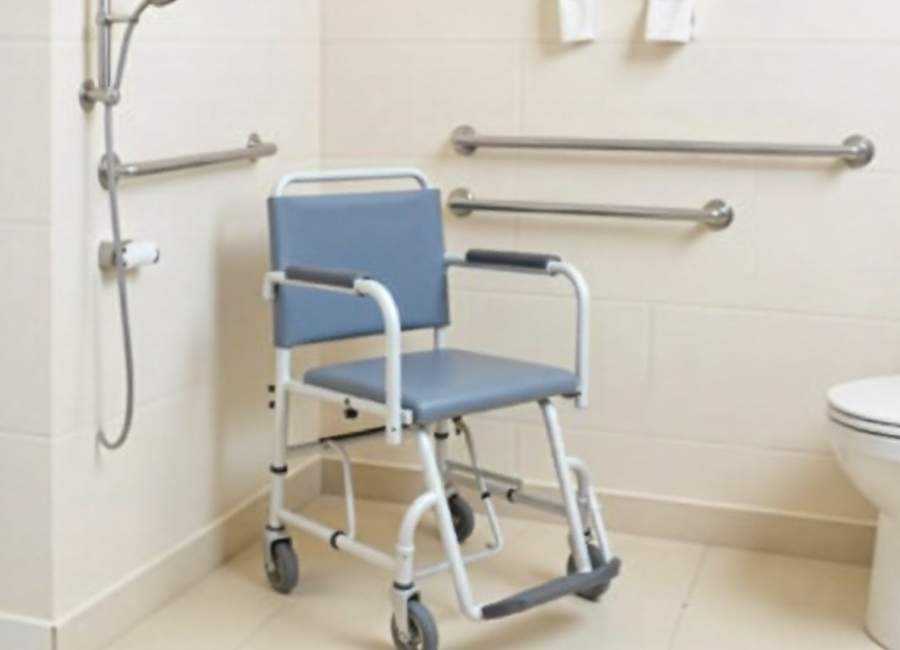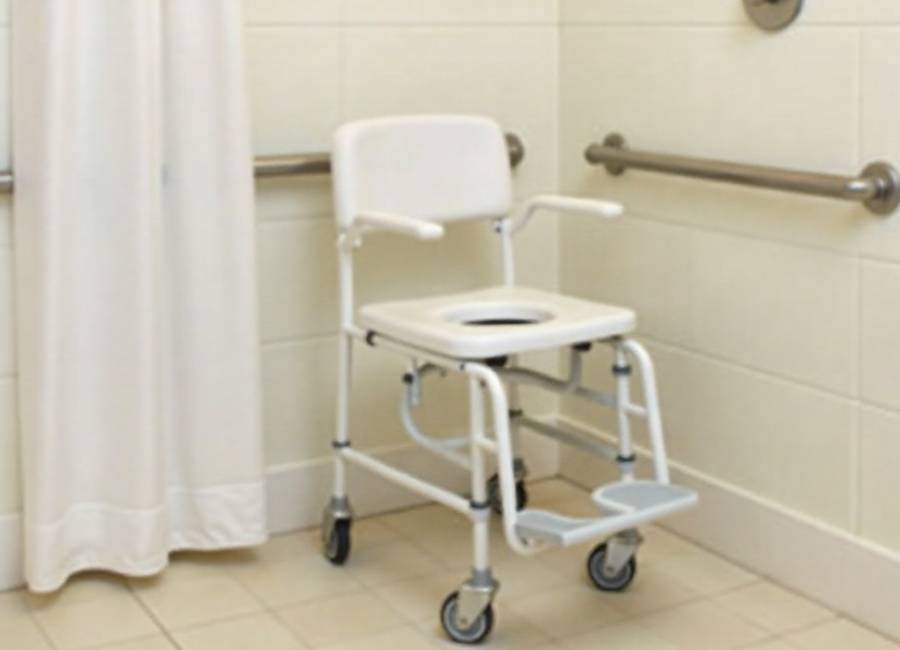A safe and accessible bathroom is essential for maintaining independence, particularly for individuals with mobility challenges. One of the most common and effective aids is a shower chair, which significantly reduces the risk of slips and falls. However, the cost of medical equipment can be a barrier for many.
Fortunately, several programs and resources are available to help you obtain a shower chair for free or at a significantly reduced cost. This guide will walk you through the various avenues you can explore, from insurance benefits to community-based assistance. Understanding these options can empower you to find the support you need without straining your finances.
What is a Shower Chair?
A shower chair, also known as a shower bench or bath seat, is a waterproof seat designed for use in a shower or bathtub. It provides a stable surface to sit on, allowing individuals to bathe safely and comfortably. These chairs are particularly beneficial for:
- Seniors
- Individuals with disabilities
- People recovering from surgery or injury
- Anyone with balance or strength issues
By allowing a person to sit while showering, these chairs reduce fatigue and minimize the risk of falling on wet, slippery surfaces.
Getting a Shower Chair Through Medicare

For many older adults and people with disabilities, the first stop for medical equipment is Medicare. Understanding how Medicare covers shower chairs is key to accessing this benefit.
Does Medicare Cover Shower Chairs?
Yes, Medicare Part B can cover the cost of a shower chair, but there are specific conditions that must be met. Medicare classifies shower chairs as Durable Medical Equipment (DME). For an item to be covered as DME, it must meet several criteria:
- It must be durable and able to withstand repeated use.
- It must be used for a medical reason.
- It is not usually useful to someone who isn’t sick or injured.
- It is suitable for use at home.
Most importantly, the shower chair must be deemed medically necessary by your doctor. This means your doctor must provide a written prescription stating that you require a shower chair for safe bathing due to a specific medical condition.
How to Get a Medicare-Covered Shower Chair
Follow these steps to obtain a shower chair through Medicare:
- Visit Your Doctor: Schedule an appointment to discuss your concerns about mobility and safety in the bathroom. If your doctor agrees that a shower chair is medically necessary for you, they will write a prescription.
- Find a Medicare-Approved Supplier: You must get your shower chair from a supplier that is enrolled in the Medicare program. If you use a supplier that is not enrolled, Medicare will not pay the claim. You can find a list of approved suppliers on the official Medicare website or by calling 1-800-MEDICARE.
- Submit Your Claim: The DME supplier will typically submit the claim to Medicare on your behalf. They will need your prescription and Medicare information.
Under Medicare Part B, once your annual deductible is met, Medicare will cover 80% of the Medicare-approved amount for the shower chair. You will be responsible for the remaining 20% coinsurance. If you have a Medicare Supplement (Medigap) plan, it may cover this 20% coinsurance, potentially making the chair free for you.
Medicaid and Shower Chairs

Medicaid is a joint federal and state program that provides health coverage to millions of Americans, including eligible low-income adults, children, pregnant women, elderly adults, and people with disabilities.
Coverage for shower chairs under Medicaid can vary significantly from state to state. Most state Medicaid programs do cover DME, including shower chairs, when they are deemed medically necessary. The process is similar to Medicare: you will need a prescription from your doctor.
Some states may have preferred suppliers or specific types of chairs that are covered under their regulations. To learn about your state’s specific policies, please contact your local Medicaid office directly.
Assistance from the Department of Veterans Affairs (VA)
If you are a veteran enrolled in the VA health care system, you may be eligible to receive a shower chair and other bathroom safety equipment for free. The VA provides a range of medical devices and Home safety modifications to support veterans’ independence and well-being.
To get started, speak with your VA primary care provider or a VA social worker. They can assess your needs and prescribe the necessary equipment. The VA typically covers the full cost of prescribed medical equipment for eligible veterans.
Other Programs and Organizations

If you don’t qualify for Medicare, Medicaid, or VA benefits, or if you need help covering the copayment, several other organizations may be able to help.
Local Non-Profits and Charities
Many community-based organizations and charities offer assistance to those in need.
- Disease-Specific Organizations: Groups such as the ALS Association or the Muscular Dystrophy Association often offer equipment loan programs for their members.
- Local Chapters of national organizations, such as the American Red Cross, Salvation Army, and Goodwill, sometimes have medical equipment available for loan or at a very low cost.
- Area Agencies on Aging (AAA): These agencies are an excellent resource for seniors. They can connect you with local programs that provide free or low-cost medical equipment, Home modifications, and other support services.
Hospital Equipment Loan Programs
Some hospitals and rehabilitation centers run their own medical equipment loan closets. When patients are discharged, they may be asked to donate gently used equipment, such as walkers, crutches, and shower chairs. These items are then cleaned, sanitized, and loaned out to others in the community. Contact the social work or case management department at your local hospital to inquire about these programs.
Find the Support You Need
Ensuring safety in the bathroom is not a luxury—it’s a necessity for maintaining health and independence. A shower chair is a simple yet powerful tool that can prevent life-altering falls. While the cost may seem like a hurdle, a variety of programs exist to help you obtain one for free or at a minimal fee.
Start by consulting with your doctor to obtain a prescription, and then explore your insurance options, including Medicare or Medicaid. Don’t forget to reach out to veterans’ services or local non-profits, as they are valuable resources in your community. By taking these steps, you can secure the necessary equipment to live more safely and confidently.











